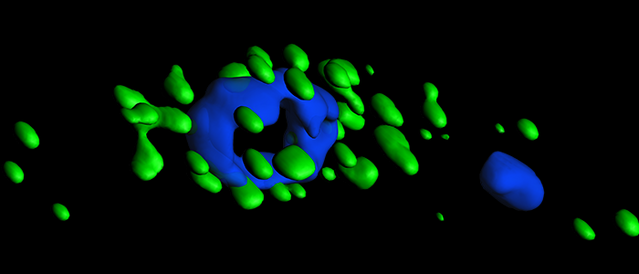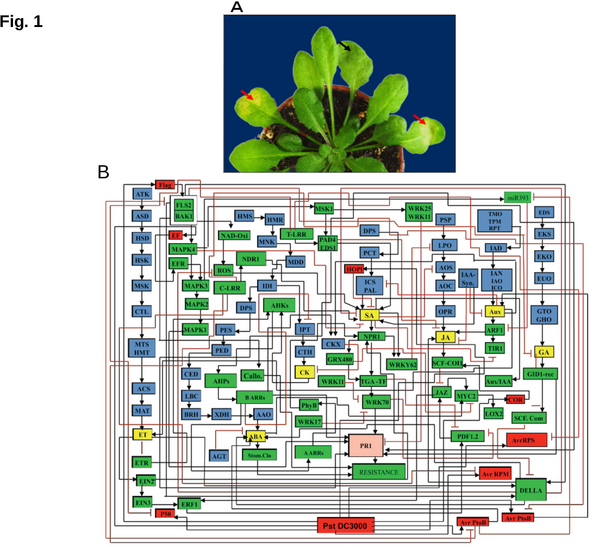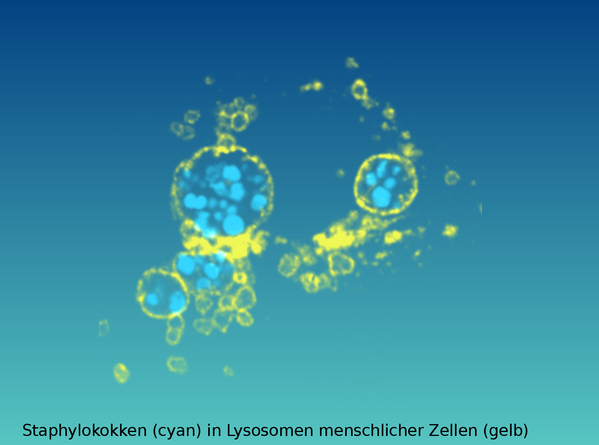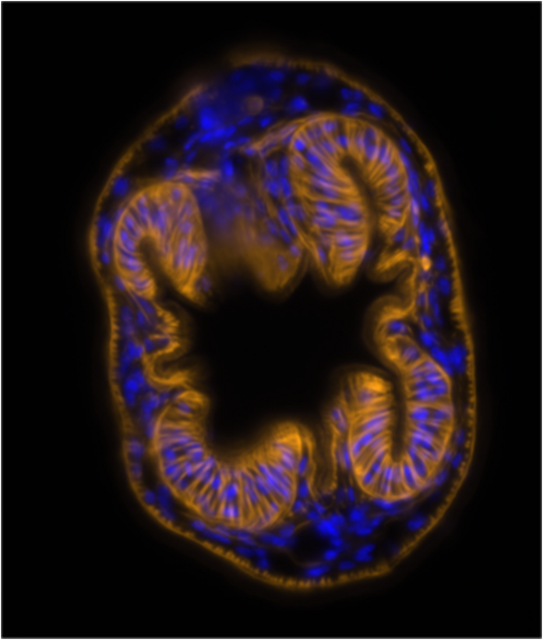program details 2021
Online Lectures and labs will be held daily from 9.00 a.m. to 5.15 p.m..
Course Certificates
Dear Course Members,
here are the details on getting your course certificate:
standard certificate (3 ECTS) you simply send a short summary on the course days regarding the scientific contents and what the key messages to learn were for every day (a total of 1-2 pages is enough; but this is no course evaluation but a scientific summary of the course contents) to Dr. Rapp-Galmiche, she will then send out the course certificate subsequently.
For a 5 ECTS certificate you send a summary of a particular topic (you can pick any lecture topic you like, please contact the lecturer of choice per e-mail and cc Dr. Rapp-Galmiche so that she knows from whom to expect the grading of the essay). Here the key point is to give a summary on the topic (about 4 pages, looking at current literature and giving proper references to current literature and of course just remember what has been taught in the course) and then write 3-4 pages about your own opinion and investigation on the topic. You may confirm the view presented in the lecture but you are also welcome to extend it by own suggestions or also point out the critical points, what is not yet clear, where more experiments etc. are warranted. Aim here to finish during December to send in the first draft. After corrections from the supervisor, the deadline for the revision is 9th of February. The summaries will be re-evaluated for completeness and content. After this the certificate for the course is sent to you.For this more demanding essay on a topic of the summer school in infection biology you can also get the course certificate with 5 ECTS and a grading (international A-E scale).
Monday September 20th
Trypanosomes and Leishmania
Location: ONLINE MEETING
Lecturer: Dr. Susanne Kramer (Homepage)
Zoology I

SLOT 1: 9:00-10:30 a.m.
9:00-10:00 Trypanosoma brucei: introduction to the parasite and disease
Lecture (Susanne Kramer)
10:00-10:30 The Cure (Sleeping Sickness)
Movie (Medicin Sans Frontiers)
ZOOM-Coffee: 10:30-11:00 a.m.
Bring your own coffee and meet the spakers and each other
Social Meeting (students and lecturers)
SLOT 2: 11:00-12:30 a.m.
11:00-11:30 DNDT (German network against Neglected Tropical Diseases)
Lecture with discussion (Markus Engstler)
11:30-12:00 Tsetse Flies
- Breeding in the laboratory
Movie (Lidia Schegelski and Susanne Kramer)
- Dissection and experiments
Insights from the Bench (Stephan Löwe and Jaime Lisack)
12:00-12:30 More than parasites: Trypanosomes as model systems
Lecture with discussion (Susanne Kramer)
LUNCH BREAK: 12:30-13:45 p.m.
SLOT 3: 13:45-14:45 p.m. (Chagas and Trypanosoma cruzi)
13:45-14:30 Chagas disease: Surveillance and prevention in Latin America. Different countries and ways of approaches
Lecture with discussion (Alicia Ponte-Sucre)
14:30-14:45 Working with T. cruzi in the lab, student report
Insights from the Bench (Bernardo Gabiatti)
ZOOM-Coffee: 14:45-15:15 p.m.
Bring your own coffee and meet the spakers and each other
Social Meeting (students and lecturers)
SLOT 4: 15:15-16:30 p.m. (Leishmaniasis)
15:15-16:00 Leishmania, concepts and challenges, diagnosis, chemotherapy and drug resistance
Lecture with discussion (Alicia Ponte-Sucre)
16:00-16:15 Working with Leishmania in the lab, PhD student report
Insights from the Bench (Elisa Rauh)
16:15-16:30 Conclusions, final discussion
Discussion (all)
Tuesday September 21st
Systems Biology of Infection
Lecturer: Prof. Dr. Thomas Dandekar (Homepage)
Chair, Bioinformatics

Pseudomonas Syringae attacks the host -- how do you understand the host response?
(A) Phenotype: Pst (104 CFU/ml) infection; red arrows indicate pathogen inoculation; black arrow indicates mock (10mM MgCl2) inoculation. Symptoms weare photographed three days post pathogen inoculation (DPPI). (B) Network: Topology of Pst- mediated hormone disease networks in Arabidopsis. Connectivity among nodes is based either on activation (->) or inhibition (-|). Node designation: blue, enzymes of hormone biosynthesis and degradation; yellow, active hormone molecules; green, host regulatory factors; red, Pst- originated pathogenicity factors responsible for triggering immunity in Arabidopsis; pink, “PR-1”, marker node for immunity against the infection of Pst in Arabidopsis. All nodes are denoted by abbreviations.
More information on these questions is found in our plant cell paper: Naseem M, Philippi N, Hussain A, Wangorsch G, Ahmed N, Dandekar T. Integrated systems view on networking by hormones in Arabidopsis immunity reveals multiple crosstalk for cytokinin. Plant Cell. 2012 May;24(5):1793-814.
However, the same techniques can also be applied (and are shown in the course) to study human infection defense against pathogens.
Schedule
Location: ONLINE MEETING
Equipment: computers – with camera
09:00-10:00 Introduction: Prof. Thomas Dandekar, Department of Bioinformatics University of Würzburg (chair) and EMBL Heidelberg
Title: "Systems biology of infection – bioinformatical approaches"
Including administration: attendance, insurance
10:00-11:30 Part I Database and Interactomics
- Dr. Chunguang Liang, Department of Bioinformatics University of Würzburg
Title: "Databases in infection biology"
11:30-14:15 Part II Getting into -omics: transcriptomics and proteomics
- 11:30-12:30 Dr. Mugdha Srivastava, Department of Bioinformatics, University of Würzburg
Title: "RNA sequencing in Infection Biology "
12:30-13:30 Lunch break
- 13:30-14:00 Dr. Elena Bencúrová, Laboratory of Biomedicine, Microbiology and Immunology,
University of Veterinary Medicine and Pharmacy in Kosice, Slovakia and University of Würzburg (lecture theatre A102)
Title: "Proteomics in infection biology"
- 14:00-14:15 Discussion
14:15-15:00 Break
15:00-16:30 Part III Current trends in systems biology
- Prof. Alicia Ponte-Sucre, Humboldt professor, Insituto de Medicina Experimental, Universidad Central de Venezuela, Caracas
Title 1: "TICS, surveillance and prevention in neglected diseases Relation with the sustainable and millenium goals"
Title 2: "Betulinic acid derivates activity in L.braziliensis. Statisitcal methods to evaluate the IC50"
16:30-18:00 Part IV Drug design and signalling in infection biology
- Dr. Meik Kunz, Chair of Medical Informatics, Friedrich-Alexander-University of Erlangen-Nürnberg
Title: "Drug target identification in infection biology" - Prof. Thomas Dandekar, Department of Bioinformatics University of Würzburg (chair) and EMBL Heidelberg
Title: "Current trends of modelling in infection biology"
Useful link:
http://www.nature.com/news/mapping-identifies-best-targets-for-malaria-prevention-1.10781
References:
Systems Biology
A Textbook
Klipp, Edda / Liebermeister, Wolfram / Wierling, Christoph / Kowald, Axel
https://www.wiley-vch.de/de/fachgebiete/naturwissenschaften/systems-biology-978-3-527-33636-4
Arthur Lesk "introduction to bioinformatics"
https://www.amazon.de/Introduction-Bioinformatics-Arthur-Lesk/dp/0199651566
For German speaking students the book by Andrea Hansen is fine
https://www.springer.com/de/book/9783764362539
as well as my own (with Meik Kunz)
https://www.springer.com/de/book/9783662546970?gclid=EAIaIQobChMIsMG0n4ba5AIVzeR3Ch1zaQDqEAQYASABEgL1__D_BwE
Wednesday September 22nd
Location: ONLINE MEETING
09:00-09:30 Visiting Germany: discussion round with Juan Prada Salcedo
09:30-11:00 Round table
discussion possibilities for young researchers, possibilities infection biology
(Prof. Thomas Dandekar)
11:00 Technologies and ethics in research "An appropriate world for children" (Prof. Alicia Ponte-Sucre)
Thursday September 23rd
Intracellular S. aureus
Lecturer: Dr. Martin Fraunholz (Homepage)

Figure: Staphylococcus aureus (cyan) in phagolysosomes of human cells (yellow)
Topic area: Microscopic analysis of intracellular bacterial host-pathogen interactions: Practical image analysis with Fiji/ImageJ (basics & motion tracking, feature counting)
Upon infection Staphylococcus aureus is readily phagocytosed by macrophages and neutrophils but is also to invade epithelial and endothelial cells, fibroblast, osteoblasts, and keratinocytes. The uptake by latter so-called non-professional phagocytes has been proposed to play a role in evasion of the innate immune system. Further survival of phagolysosomal killing by S. aureus may also lead to disseminating infections within migrating phagocytes. We and others have shown that S. aureus is capable of escaping from host cell phagosomes. One of our methods is microscopy based and relies on the recruitment of a cytoplasmically expressed host cell marker that is recruited to the bacterial cell wall upon phagosomal membrane rupture.
We will address theoretical and practical aspects of confocal laser scanning microscopy as well as the underlying fluorophores. We will analyze images of uninfected and infected human cells using Fiji/ImageJ, a tool which is handy for other image analysis aspects, too.
Participants should bring a USB Thumb drive, if they want to keep their own personalized Fiji/ImageJ version.
Schedule
Location: ONLINE MEETING
Equipment: computers – with webcam
09:00-10:00 Introduction: Martin Fraunholz, Chair of Microbiology, University of Würzburg
10:00-12:30 Fiji/ImageJ to analyze biological data
- „Installation“ and Basics of biological image acquisition
12:30-13:30 Lunch break
13:30-16:00 Fiji/ImageJ to analyze biological data
- Image/Movie analysis in multiple dimension, Image quantification
-------------------------------------------------------------------------------------------------------------------------------------------------------------------------------------------------------------------------
Friday September 24th
Parasitic Helminths
Lecturer: Prof. Klaus Brehm (Homepage)
Medical Parasitology
Institute of Hygiene and Microbiology

Figure: Echinokokkus
Parasitic Flatworms: A tale of mortality and immortality.
Parasitic helminths are a major cause of so-called ‘Neglected Diseases’. And Neglected Diseases are called ‘neglected’ because nobody (or only very few) has/have an interest to study them. So, why are we doing it? This is something we’re going to figure out in the ‘Parasitic Helminth’-day of the summer school. We shall learn that the development of novel therapies is not the only motivation to do infectious disease research and that these parasites (like many others) are highly fascinating from the view-point of immunologists as well as cell-, developmental- and evolutionary biologists. Above all, we shall learn how molecular research can be done in a ‘non-mainstream’ setting and which strategies should be followed to establish an infectious disease model system from scratch.
Schedule
09:00-12:00 Self-preparation on the topic (using materials provided in WueCampus)
13:00-15:30 Lecture and video (Prof. Klaus Brehm)
15:30-16:00 Conclusions, final discussion (all)








